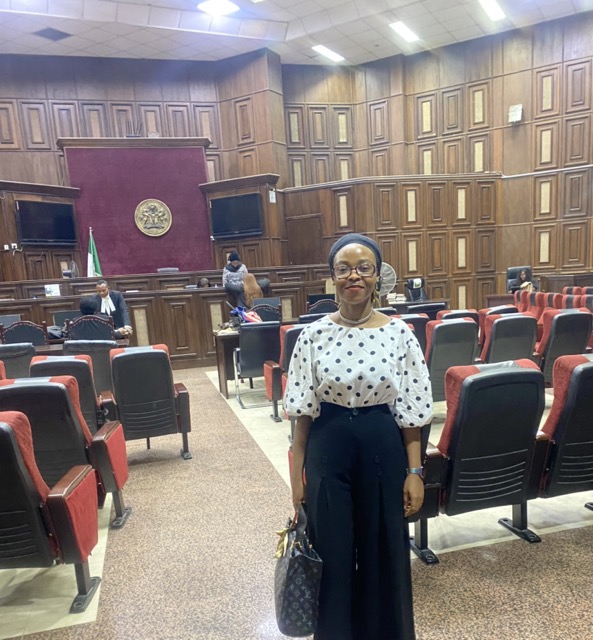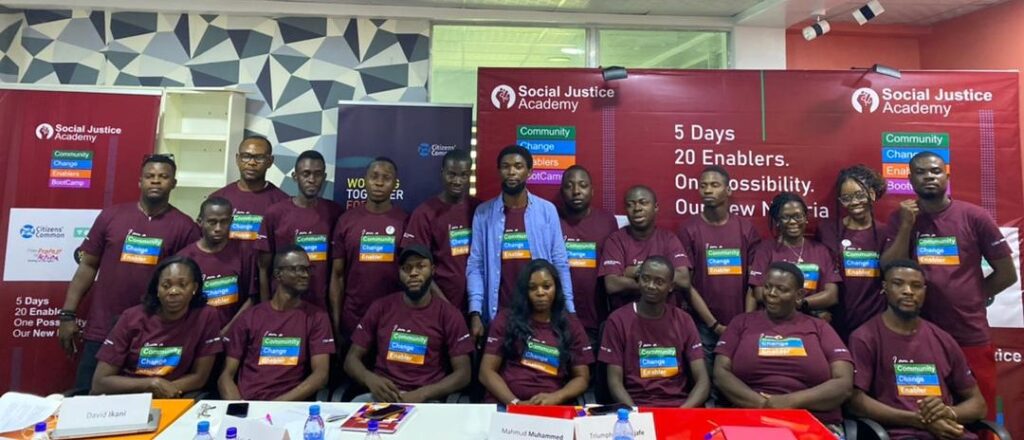
A Letter to National Judicial Council: Technology for the Future of the Nigerian Court System
Written by Benita Ezumezu
On 29, October 2023, at the International Bar Association (IBA) conference in Paris, France, Olumide Akpata, a former president of the Nigerian Bar Association (NBA) and a statutory member of the National Judicial Council (NJC), stated that the country is under ‘judiciary capture.’ Despite the increase in the use of technology, the court system has remained stagnant.
Advancements in technology are fostering transparency and accessibility in every sector, and the legal system should not be left out. The use of stenographers and recording has been a bane and should be addressed. Digitising the court system—including e-case filling platforms, management systems, court records, and research—would help advance the proceedings of legal cases. Lawmakers should direct funding towards a more digitised court system in Nigeria and ensure that jurisdictions that have invested in technology are maximising its potential.
Nigerian jurisdictions like Abuja launched the recording machine and record transcription in 2020, and Lagos began the use of stenographers and recording in 2021, previously discussed in 2020, but the use has not recorded much success. In some courtrooms, despite the presence of the recorder, judges prefer the old model of longhand, requiring regular adjournment and tedious recordkeeping. If the use of technologies is enforced, there will be fewer extensive travels and unforeseen expenses due to delays in proceedings. The compulsory use of technology in courtrooms will promote a speedy response to court cases.
Despite NJC’s adoption of digital technology for effective and efficient justice delivery in the country, conventional paper-based procedures are still being used. The use is prone to a series of mistakes and unnecessary delays. From filing to judgement, the entire legal process might be streamlined with a contemporary, digital case management system. The use of a recording machine would improve the courts general efficiency and, in addition, reduce the many backlog of cases. Mr Femi Aina, Nigerian lawyer who practises in the United Kingdom, stated that the use of a transcription machine will solve this problem.
Additionally, the practice of physically submitting documents would change significantly with the introduction of electronic filing, thereby speeding up case processing while minimising the need for paper and positioning Nigerians to stand in line with international best practices. The Nigerian legal system has been sluggish rather than progressive, especially in the aspect of technology. A good example is the forfeiture of the rights of Mr. Rasaq Yusuf by his lawyers due to the long wait of application for appeal of his sentence to death in Ilorin, Kwara State.
The use of technology does not come without challenges. Data protection remains an issue, and the introduction of new methods requires training of stenographers and lawyers. NUJ should provide support through investment in trainings and strong cybersecurity measures. This must be addressed by investing in modern cybersecurity infrastructure in order to protect the privacy of court communications and documents. Funding must be prioritised for necessary training of judicial officials and stenographers through initiatives that would strengthen legislative frameworks. The budget increase to N150bn on 15 November, 2023, from the N120bn in 2022 is not enough. Lack of funds is one major reason most staff go on strike, affecting the court system. Insufficient funds also slows down the unification of national policy on technology.
The Nigerian legal system’s future requires careful planning and cooperative efforts of all local and international actors. NJC must encourage public-private partnerships. A more seamless transition can also be achieved by increasing stakeholders’ knowledge and comprehension of the advantages and security measures related to technology in the courts.
The use of a biometric identification model in the courtroom will ensure appropriate people show up for hearings, which can significantly improve the security of court proceedings. Illegal access to private legal documents can be avoided by putting in place strong access controls and biometric authentication. This will also stop frivolous adjournments, especially from counsel. The court has discretion to award punitive costs for that course; an aggravated penalty would make litigants sit up. The National Judicial Council should take proactive measures to check the regulations and ensure that matters are not unnecessarily delayed.
Change is coming for Nigeria, and in order to move our courts into a future of effectiveness, accessibility, and transparency, we must embrace the power of technology. Though Nigerians may be at crossroads of culture and digital progress, judicial leaders must look into the Nigerian legal system’s changing terrain and strengthen the judicial process to successfully deliver justice.
This opinion piece is an Excerpt from 1828: Championing Freedom
About the Author
Benita Ezumezu
Benita is a social impact professional, researcher committed to the achievement of sustainable development goals in our lifetime. She is the Program Manager at Citizens’ Common Advocacy and leads the management of of ImpactCentral Social Innovation Hub, where she works on technology, law and active citizenship, and social enterprise development projects.
LinkedIn:Benita Ezumezu, Instagram: Mhyssneetah, Twitter: @Benny_ezumezu








Responses